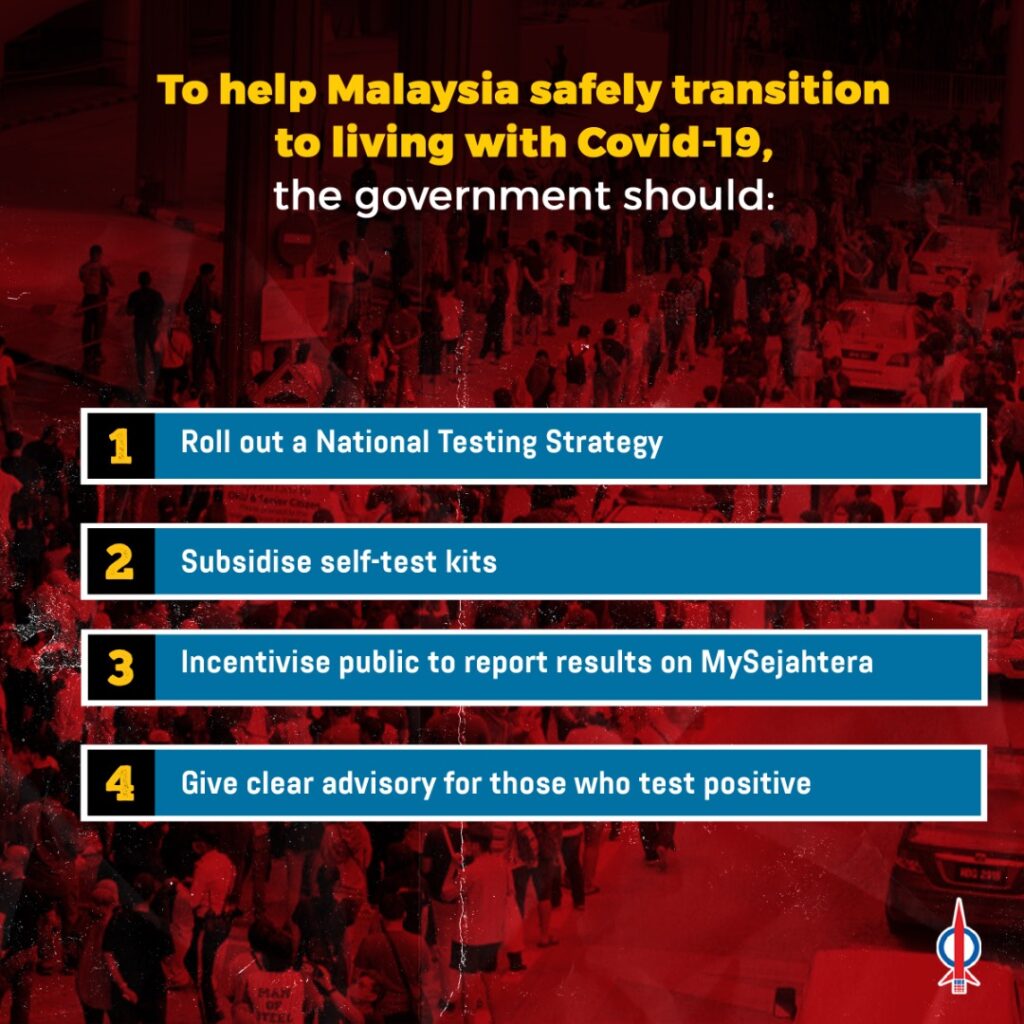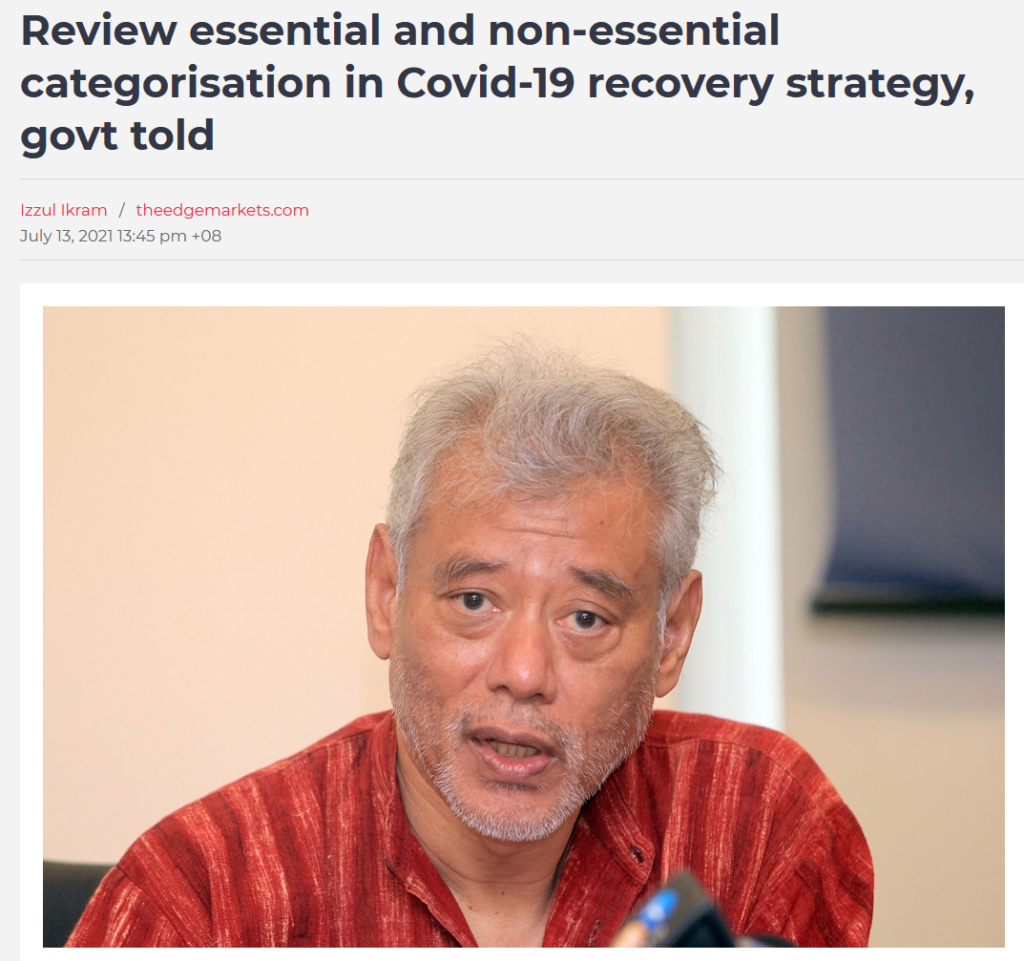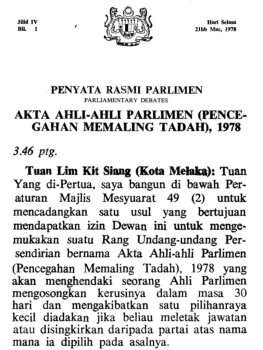
Press Statement
23rd September 2021
In my Parliament Speech, I pushed hard for the government to explain their plans on implementing a National Testing Strategy which is so vital for us to transition properly and safely, especially when we are talking about endemic Covid-19.
This strategy is fundamental and in my view, should have been implemented last month or even earlier. The announcement of travel bubbles like Langkawi should have been done together with the Testing Strategy to protect those travelling in and even out of Langkawi.
That’s why we saw confusion and last minute flip-flop decisions before travellers went to Langkawi, including the need to test before flying in or even flying out. All these should have been thought through since the beginning to ensure safety of not just the bubble, but also those coming out of the bubble who travel back to their respective places.
Now that the government is talking about opening up more travel bubbles, it is even more pertinent that such strategy is in place.
The fact of the matter is that this National Testing Strategy covers all aspects of business and even our socio-economy. The government cannot at this time continue to classify economic activities based on “essential and non-essential” anymore. When the people are struggling, all businesses are now essential and thus should instead be classified as “higher risk to lower risk” and as such, the testing strategy will cater and adjust to that risk assessment.

Then under the National Testing Strategy, lower risk economic or even social activities will have their own testing SOP with lower frequency of testing required compared to those with higher risk. Higher risk industries including factories, manufacturing, construction, and others will require more testing, maybe up to weekly or biweekly testing in order to cut out workplace clusters.
This covers all social events and even our education institutions. Its impact and importance covers all aspects of our socio-economic activities and thus is fundamental especially when the government is reducing more and more of the restrictions. We cannot just rely on vaccination as a reason to loosen up more restrictions without strengthening other public health fundamentals.

One of the things the government must do to ensure the effectiveness of and compliance to this National Testing Strategy is for self-test kits to be affordable and accessible to all including the poor. That is why I reiterate my call to subsidise these test kits, push it below RM10 so that it is not too burdensome to lower income groups and even SMEs that have been struggling during this tough time.

One of the things the government must look at is to find ways to incentivise the general public to report the results of their self-test kits on MySejahtera, even when it is negative. Currently, in most cases when we use these self-test kits, we do not report it especially when it is negative and this hinders us from capturing the total number of tests done nationwide which affects the nation’s positive rate.
In order to get a better view of the disease burden in our country and also to capture all data especially of total tests done including self-test kits, the government must finds ways to incentivise and encourage people to report their results.
That is why I suggest to the government to implement a “cash-back” or rebate system. This works firstly by the government subsidising the kit to say RM10, but it is sold slightly higher at maybe RM 12. However, once the user reports the results based on the barcode of that particular test kit, the user will get back a rebate of RM2 that will be credited back into their MySejahtera.
This can be one of the ways we incentivise others, including other methods to incentivise those who do not have a smart phone or MySejahtera especially in rural areas.
It is so important that the government comes up with a comprehensive National Testing Strategy, finds ways to subsidise test kits, finds ways to incentivise people to report, and also comes up with a clear and specific advisory for people who test positive so that they know what to do next.
This is fundamental if we want to transition safely and sustainably into endemic Covid-19 and its implementation should not be delayed any further.
Dr. Kelvin Yii
MP for Bandar Kuching



